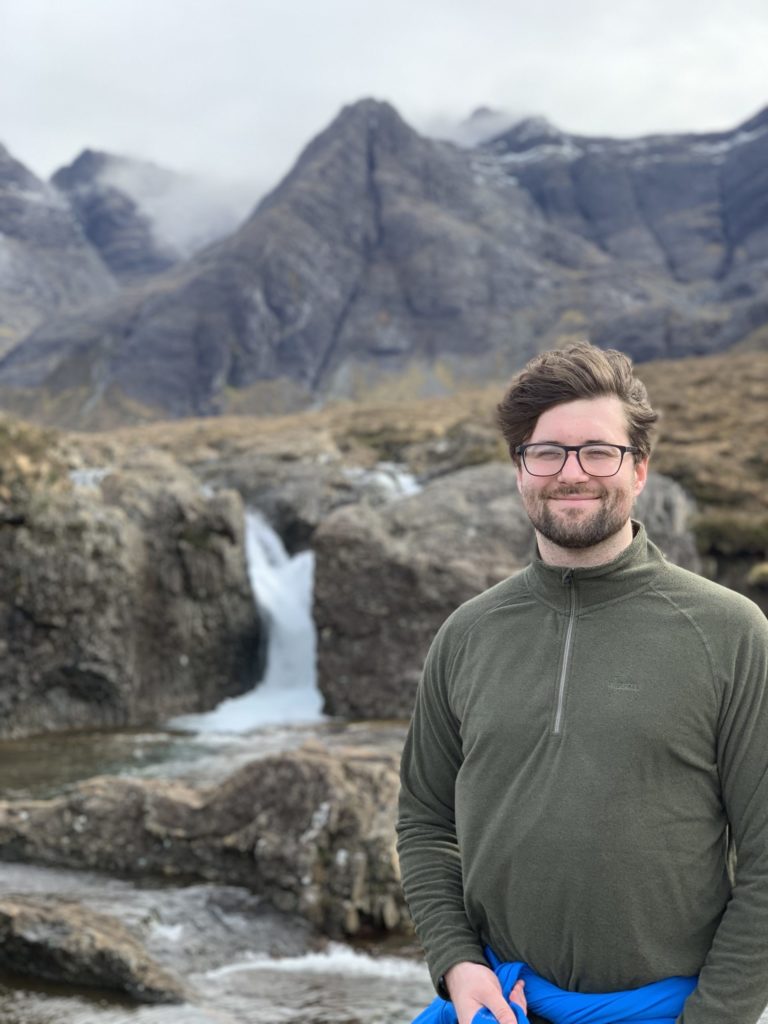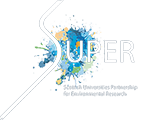
Callum Hamilton, a postgraduate researcher from the second SUPER DTP cohort, undertook a 3-month internship in the summer of 2023 with Rastech, a sustainable aquaculture research center based at the Eden Campus of the University of St Andrews. Rastech is an industrial partner for Callum’s studentship, and so the aim for the internship was for Callum to complete the final experimental chapter of their thesis. Their research investigated whether deposit feeding polychaete worms can feed on anaerobic digestate waste from saline and freshwater aquaculture systems, and how these waste streams influenced growth and the microbiome of the culture systems.
Callum shares their reflections on the experience below.
What reasons did you have for undertaking an internship?
I had a few reasons for taking an internship. Primarily, it was required as Rastech had provided some funding towards my PhD. However, it was an excellent opportunity to immerse myself in an industrial setting at a cutting edge research institution. Moreover, it allowed me to learn from some brilliant minds in the space which are often unheard from, and see – in real time – how my research fits into the overall development of sustainable aquaculture.
What did your internship role involve?
My role was multi-faceted. I was to conduct the last experimental chapter of my PhD on site, which involved building a recirculating aquaculture system from the ground up. I was also involved in the monitoring and husbandry of culture species on site (Arctic Char and Whiteleg shrimp). I also collaborated and networked with another company using the space, who were doing a similar research to my own. All round, they facilitated my final chapter for knowledge exchange but also allowed me to step into a more industrial role when I wanted to.
What were the main benefits to you of undertaking the internship?
The main benefits of my internship was getting experience in an industrial setting, but as stated, exchanging knowledge. It became clear that much of the aquaculture industry’s development is done behind closed doors and IP is heavily protected, but in order to sort the daunting issues faced with bringing aquaculture closer to land we must work together.
What opportunities for skills and personal development did the internship offer?
Skills and development opportunities. Much of the opportunities on site built upon things I had already learned at SAMS, my home institution. However, doors have opened for future collaboration in the industry and the network I have built off the back of the placement is key to my future career.
What were the main achievements and outcomes of the internship?
Completing my final chapter was the largest outcome of the internship. This was essential and being able to do it in a novel system with different waste types allows highly publishable outputs – of which I am still currently working on. Opening doors for future collaboration is also a great achievement and is something I wouldn’t have had without the internship.
Would you recommend an internship to other PGRs?
YES! Internships are a great way to keep up-to-date with industry as academia can become a bit of a bubble. You also cross paths with people you may be familiar with through research, and further opportunities may present themselves.
